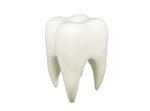Scientists about worries
As long as there's a good reason for fear or anxiety, and it doesn't interfere with the ability to work, play, and socialize, it is not considered a problem. But when anxiety takes on a life of its own and begins to disrupt everyday activities, the situation is no longer normal. A genuine emotional disorder is now at work... and it's time to see a doctor. Effective treatments for anxiety disorders are available, and research is yielding new, improved therapies that can help most people with anxiety disorders lead productive, fulfilling lives. If you think you have an anxiety disorder, you should seek information and treatment. Also, research indicates that other brain parts called the basal ganglia and striatum are involved in obsessive-compulsive disorder. Psychopharmacology, the treatment of psychiatric disorders and emotional distress with medication, has developed over the last fifty years, as our understanding of the workings of the brain has increased in sophistication. When medication is prescribed for mental and emotional illness, the most frequent goal is to restore the chemical balance within the brain, thereby restoring equilibrium to the entire system. Certain drugs function to address certain symptoms, such as when sedatives are prescribed for insomnia. Medications can work to slow disease processes, such as when anti-oxidants are used to treat Alzheimer's. Still other drugs control cravings and curb other problematic behaviors, such as taken to control alcoholism. |
Modern weight loss solutions
Fat distribution can influence a person's risk of disease. Fat carried around the waist and in the abdominal area, characterized by the "apple shape", is associated with an increased risk for many medical problems such as heart disease, cancer, high blood pressure, and diabetes. Fat that is mostly distributed around the buttocks and thighs is associated with a lower risk of developing these diseases. Research points to differences in appetite control and energy expenditure. It is important for obese people not to hold themselves responsible for their condition. Obese people should be evaluated for medical consequences of their obesity. Motivated persons are encourage to enter medically supervised treatment programs that use a multidisciplinary approach to weight loss. During a binge, 10,000 to 20,000 calories can be consumed throughout the day. Binges usually consist of foods like cookies, candy, chips, ice cream and many other high calorie foods. Binges are often done in secret. After a binge, many of the feelings that caused the binge, like stress, may have subsided only to be replaced with feelings of guilt and lack of self-control. The following guidelines have been developed that may help control binge eating: - Eat only at established meal times. - Avoid keeping foods around that may trigger bingeing. - Avoid fad or very restrictive diets. - Keep a food diary and log to assess what prompted the binge. |
Our healthy teeth
Throughout your life you end up having 2 completely different sets of teeth. The initial set is the baby teeth (deciduous teeth) that eventually fall out. They are whiter, softer, and less sturdy than adult teeth. Hence, they tend to wear out much faster than permanent teeth, but they also fall out to make room for them. Making sure that there's enough space in the vacancy caused by a lost baby tooth is important for healthy adult teeth. The main component of dentures is acrylic resin molded over the top of various combinations and paterns of metal. In oreder to use dentures all of the teeth in the top or bottom or both top and bottom of the mouth are removed. It is recomended that after the removal of the necessary teeth that the patient wait at least a month to have the dentures fit to the mouth. The waiting period allows for proper healing in the mouth to take place. While no alternative to veneers will create the exact same effect, there are some popular procedures that may seem worthwhile. Crowns, while more expensive, also act to cover the tooth with a protective coating. For individuals who simply want to brighten their teeth, many clinics now offer tooth bleaching, though this is a much less permanent procedure. Your cosmetic dentist will make an impression of the tooth and a dental laboratory will create the crown. You will typically leave the office with a temporary crown to wear while the permanent crown is being made - this takes about two weeks. The permanent crown is then cemented onto your tooth. Typically, only two visits are required for this part of the procedure. Often, a preliminary restoration of your tooth may be needed before a crown can be placed. To stabilize your tooth, a filling must first be put in place prior to placing a crown due to the loss of original tooth structure. Tooth crowns usually last ten to fifteen years. |
|
|
Read our other articles:
Testimonials. Hoodia.
Learn about sexual disorders
Return back your hair with hair transplantation
Prescription for aging beautifully
Seaching medicine on internet
The menopause symptoms